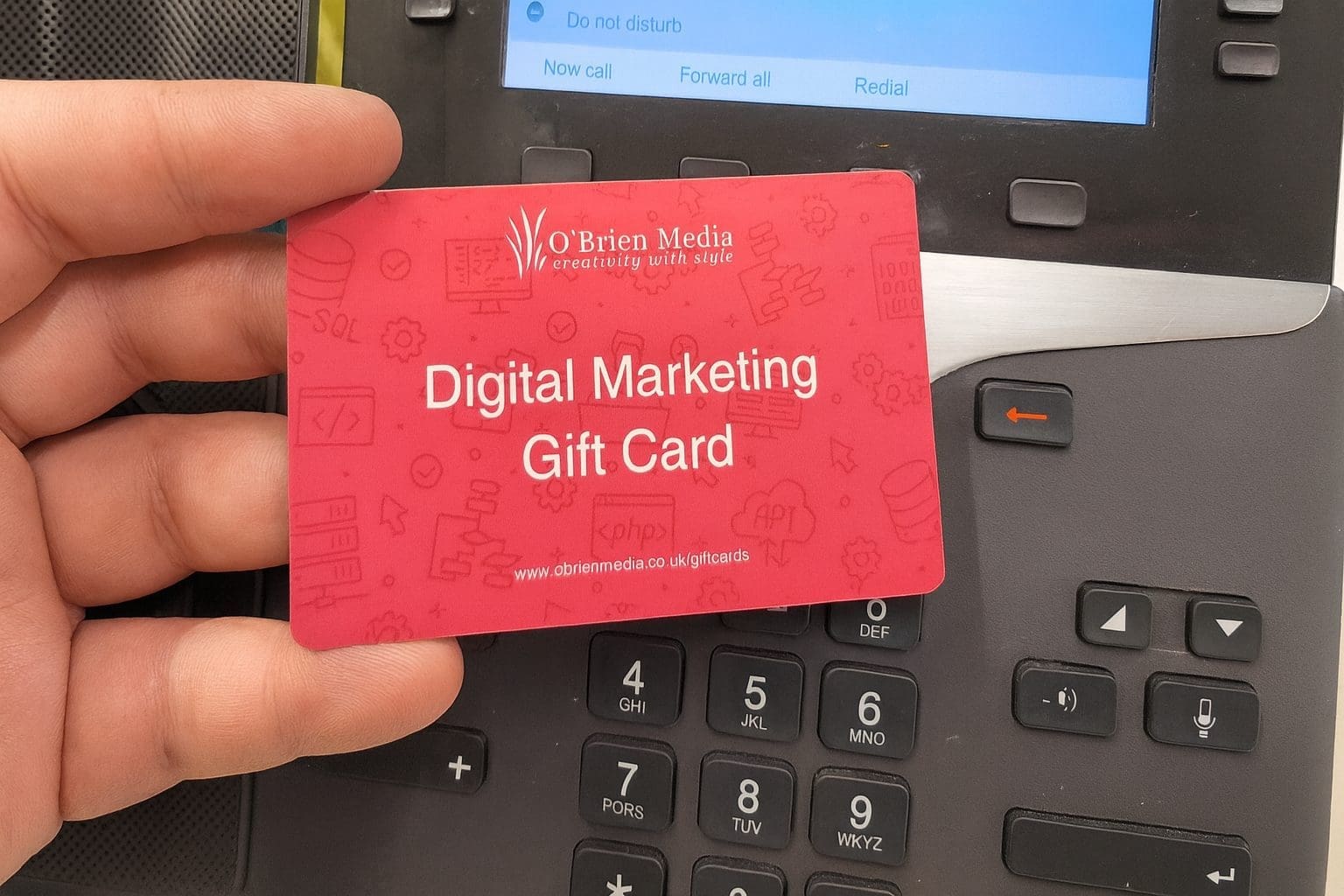Unleash the Power of Digital Excellence with O’Brien Media’s Digital Marketing Gift Cards!
Are you looking for the perfect gift for a budding entrepreneur, a thriving small business, or a creative individual? Look no further! O’Brien Media introduces an innovative way to elevate online presence — Digital Marketing Gift Cards.
Why O’Brien Media’s Digital Marketing Gift Cards?
- Expertise at Your Fingertips: Our gift cards provide access to a team of web design and digital marketing maestros. With years of experience and a passion for innovation, we transform digital dreams into stunning realities.
- Customized Solutions: Whether it’s revamping a website, boosting social media engagement, or skyrocketing SEO rankings, our gift cards cater to diverse digital needs.
- Flexibility and Freedom: Choose the value that suits your budget. Our gift cards can be used for any of our services, offering unparalleled flexibility.
- A Gift That Keeps on Giving: Empower your loved ones or business partners with the tools to grow their online presence. It’s not just a gift, it’s an investment in their digital future.
Services to Redeem:
- Web Design Excellence: From sleek, responsive designs to custom functionalities, our web design services ensure a standout online presence.
- SEO & SEM Mastery: Watch as your website climbs the search engine ladder with our cutting-edge SEO and SEM strategies.
- Social Media Magic: Engage and grow your audience with our creative and impactful social media campaigns.
- Email Marketing Expertise: We craft compelling email marketing campaigns that resonate with your audience and drive results.
How It Works:
- Choose Your Gift Card: Select from our range of values to suit your budget.
- Gift with a Click: Send the gift card directly to the recipient’s email, complete with a personalized message.
- Redeem and Transform: The lucky recipient can easily redeem their gift card and collaborate with our team to kickstart their digital journey.
Ready to Gift a Digital Revolution? Visit O’Brien Media Today!
Elevate someone’s digital potential with O’Brien Media’s Digital Marketing Gift Cards. It’s more than a gift; it’s a gateway to digital brilliance. Grab yours now and be the reason behind the next online success story!
Please contact us for Gift Card enquiries.
Check your balance
To check your gift card balance just scan the QR code on the back of the card.


